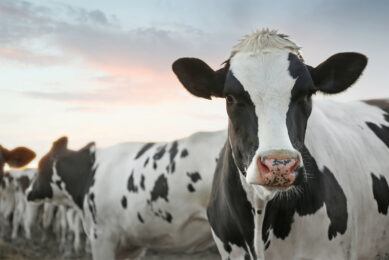California: Strict laws for antibiotics in pigs, poultry
![Supporters of the legislation say the antibiotics are fed to mostly healthy animals such as cows, pigs and chickens to make them grow faster and prevent disease in farms. [Photo: Mark Pasveer]](https://www.pigprogress.net/app/uploads/2021/04/001_852_rb-image-2703052-848x565.jpeg)
California has adopted the United States’ strictest laws on the use of antibiotics in healthy pigs, poultry and cattle, stopping their routine use to prevent illness or promote growth.
Calling the overuse of antibiotics ‘an urgent public health problem’, California’s governor Edmund G. Brown announced last weekend that he signed the bill.
In a statement, Brown said, “The science is clear that the overuse of antibiotics in livestock has contributed to the spread of antibiotic resistance and the undermining of decades of life-saving advances in medicine.”
Recommended phasing out
The US Centers for Disease Control and Prevention has recommended phasing out the use of antibiotics in cases solely to promote growth in livestock. In low doses, some antibiotics can generate greater muscle development.
The bill was drafted by Democratic senator Jerry Hill. Supporters of the legislation say the antibiotics are fed to mostly healthy animals such as cows, pigs and chickens to make them grow faster and prevent disease in farms.
US moving towards reducing antibiotics
It is another sign that the US is moving more towards a reduction of antibiotics. The US Food and Drug Administration (FDA) has been putting out so far. As from 2017, under FDA regulations, antibiotics can no longer be used for growth promoting purposes in the entire United States. Companies including McDonald’s, Chipotle and Panera have already begun promoting their chicken as raised without antibiotics.
Exemptions are allowed in case a licensed vet decides antimicrobial drugs are needed to treat a disease or infection, to control the spread of a disease, or in relation to surgery or a medical procedure.
The law, which takes effect in 2018, also eliminates the availability of livestock antibiotics for over-the-counter sales.











